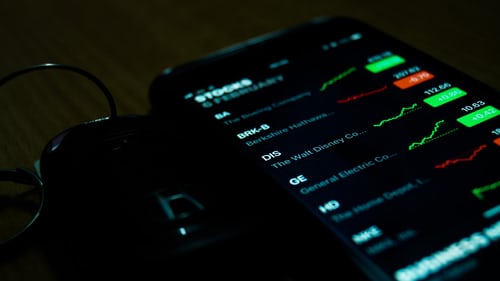Robinhood Hastens Day Trader Rise
The pandemic has accounted for many changes in daily life, from how we order food, to how we attend events, from how we dress, to how we gather. But one of the most dramatic transformations playing out because of the pandemic are those sweeping the finance industry.
Even those who are not altogether familiar with the stock market have heard of Robinhood. Indeed, in June 2020, the Robinhood trading app, exceedingly popular among young millennials testing the water in the stock market, reported 4.3 million daily average revenue trades (DARTS), more than E-Trade and Charles Schwab combined, according to CNBC.
“For people who pay attention to the stock market, it would be difficult to deny how transformative an effect start-up trading app Robinhood, the commission-free trading platform, has had on the financial industry,” Ari Stiegler, managing partner at Flux Capital, said. “And for those who have been in the stock market for decades, the impact the day traders using Robinhood are having on the market is less than welcome.”
With the growing popularity of Robinhood, which can be used as a mobile app or on the web, there has been a growing number of day traders. Experts say the pandemic is responsible for turning more people onto day trading, as more people than ever have been stuck at home, unemployed, and have put money from stimulus checks into the stock market.
Also indicative of the growing influence of the day trader is the rise of “meme” stocks, from GameStop to AMC, with non-traditional traders gathering on Reddit forums, including WallStreetBets, to discuss plans for sending the overvalued stocks “to the moon.” Their investment in the stocks hurt short sellers, many of which were hedge funds, Stiegler explained, and it also attracted the support from business leaders Elon Musk and Mark Cuban.
Progressive politicians, including Rep. Alexandra Ocasio Cortez and Senator Elizabeth Warren, have also expressed solidarity with the day traders using apps like Robinhood, as the elected officials believe it is giving access to the market to people who previously lacked access to it.
“As a result of the actions of day traders on Reddit getting behind ‘meme’ stocks, the short sellers were put into a squeeze because day traders on Reddit and elsewhere were betting the stocks would go up,” Stiegler said. “And while experts in the industry have predicted ‘meme’ stocks would eventually return to trading at their actual value, AMC was trading up more than 250-percent for the year, and GameStop was trading up more than 4,000-percent for the year.”
The rules of the game have changed, and the day trader is largely responsible.
According to some estimates, Robinhood, which was introduced in 2015, accounts for 20-percent of the total retail trading volume in the entire stock market—“an astonishing figure,” Stiegler said.
“It cannot be overstated how much of an impact this single app has had on the stock market,” Stiegler said. “Day traders have shown that hedge funds and traditional investors no longer have control over the moves of the market and, thanks to apps like Robinhood, the financial services industry now needs to factor in main street, not just wall street.

